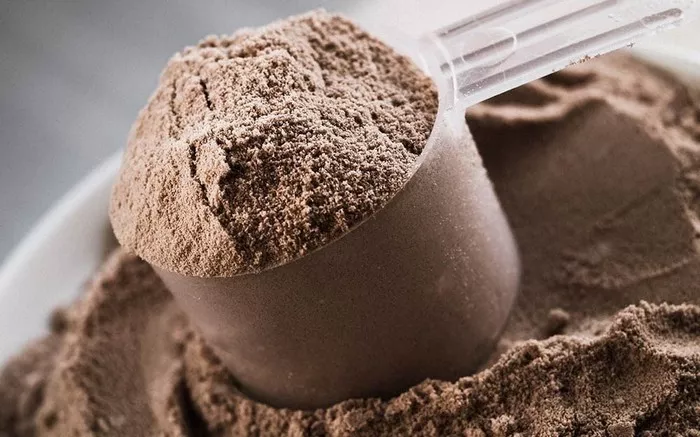Protein powders have gained popularity as convenient supplements for meeting protein needs, supporting muscle growth, and aiding in weight management. However, for individuals with diabetes, choosing the right protein powder can be challenging due to concerns about blood sugar control and overall health. This article aims to provide a comprehensive guide on selecting the best protein powder for individuals with diabetes, considering factors such as protein source, carbohydrate content, sweeteners, and potential health benefits.
Understanding Diabetes and Dietary Protein
Overview of Diabetes
Diabetes is a chronic metabolic disorder characterized by high blood sugar levels resulting from either insufficient insulin production or the body’s inability to effectively use insulin. There are several types of diabetes, including type 1 diabetes, type 2 diabetes, and gestational diabetes. Proper management of diabetes involves maintaining blood sugar levels within a target range through a combination of medication, lifestyle modifications, and dietary choices.
Role of Protein in the Diabetic Diet
Protein is an essential macronutrient that plays a crucial role in various physiological functions, including muscle repair and synthesis, immune function, and hormone production. In the diabetic diet, protein can help promote satiety, stabilize blood sugar levels, and support overall health. However, the source and composition of dietary protein can impact its effects on blood sugar control and metabolic health.
Considerations When Choosing Protein Powders for Diabetics
When selecting a protein powder for individuals with diabetes, several factors should be considered to ensure optimal blood sugar management and overall health.
Protein Source
The source of protein in a powder can significantly impact its effects on blood sugar levels and overall health. Some common protein sources used in protein powders include whey, casein, soy, pea, rice, and hemp. Each protein source has unique characteristics and may vary in terms of digestibility, amino acid profile, and potential allergenicity.
Carbohydrate Content
Carbohydrate content is another important consideration when choosing a protein powder for individuals with diabetes. Some protein powders may contain added sugars or carbohydrates to improve taste or texture. These added sugars can contribute to spikes in blood sugar levels, making them less suitable for individuals with diabetes. It is essential to opt for protein powders with minimal added sugars and carbohydrates or choose unsweetened varieties.
Sweeteners
Many protein powders contain artificial sweeteners or sugar alcohols to enhance flavor without adding extra calories or carbohydrates. While these sweeteners can be useful for individuals with diabetes looking to limit their sugar intake, some people may experience gastrointestinal discomfort or have concerns about their long-term safety. It is essential to choose protein powders sweetened with non-nutritive sweeteners that have been approved by regulatory agencies and are well-tolerated.
Best Protein Powders for Diabetics
Several protein powders are well-suited for individuals with diabetes due to their protein quality, minimal carbohydrate content, and absence of added sugars or artificial sweeteners. The following are some options to consider:
Whey Protein Isolate
Whey protein isolate is a high-quality protein derived from milk that undergoes additional processing to remove lactose and fat, resulting in a product with a higher protein content and lower carbohydrate content. Whey protein isolate is rapidly digested and absorbed, making it an excellent option for post-workout recovery or as a convenient source of protein throughout the day. It is low in carbohydrates and typically does not contain added sugars, making it suitable for individuals with diabetes.
Casein Protein
Casein protein is another milk-derived protein that is digested more slowly than whey protein, providing a sustained release of amino acids into the bloodstream. This slow digestion may help promote satiety and stabilize blood sugar levels over an extended period. Casein protein powders are generally low in carbohydrates and free from added sugars, making them suitable for individuals with diabetes.
Soy Protein
Soy protein is a plant-based protein derived from soybeans that is rich in essential amino acids and has been shown to have various health benefits, including lowering cholesterol levels and improving heart health. Soy protein powders are low in carbohydrates and can be an excellent option for individuals with diabetes looking for a vegan or vegetarian protein source.
Pea Protein
Pea protein is a high-quality plant-based protein derived from yellow peas that is rich in essential amino acids and easily digestible. Pea protein powders are low in carbohydrates and free from common allergens such as dairy, gluten, and soy, making them suitable for individuals with diabetes with food sensitivities or allergies.
Potential Health Benefits of Protein Powders for Diabetics
In addition to providing a convenient source of protein, certain protein powders may offer additional health benefits for individuals with diabetes.
Blood Sugar Control
Protein can help stabilize blood sugar levels by slowing the absorption of carbohydrates and promoting satiety, reducing the risk of postprandial hyperglycemia. Including protein-rich foods or protein supplements in meals and snacks can help individuals with diabetes manage blood sugar fluctuations and improve glycemic control.
Weight Management
Protein has been shown to promote feelings of fullness and reduce appetite, potentially aiding in weight management and preventing obesity-related complications in individuals with diabetes. Incorporating protein-rich foods or protein supplements into the diet can help support weight loss or weight maintenance goals while providing essential nutrients and promoting muscle preservation.
Muscle Health
Protein is essential for maintaining muscle mass and strength, especially in individuals with diabetes who may be at increased risk of muscle loss due to factors such as aging, sedentary lifestyle, or insulin resistance. Consuming an adequate amount of protein through dietary sources or protein supplements can help preserve lean muscle mass and support overall musculoskeletal health.
Conclusion
Choosing the right protein powder for individuals with diabetes involves considering factors such as protein source, carbohydrate content, sweeteners, and potential health benefits. Whey protein isolate, casein protein, soy protein, and pea protein are all excellent options for individuals with diabetes due to their high protein quality, minimal carbohydrate content, and absence of added sugars or artificial sweeteners. Including protein-rich foods or protein supplements as part of a balanced diet can help individuals with diabetes manage blood sugar levels, support weight management, and promote overall health and well-being. As always, individuals with diabetes should consult with their healthcare providers or registered dietitians before making any significant changes to their diet or supplementation regimen.
[inline_related_posts title=”You Might Be Interested In” title_align=”left” style=”list” number=”6″ align=”none” ids=”6486,6483,5724″ by=”categories” orderby=”rand” order=”DESC” hide_thumb=”no” thumb_right=”no” views=”no” date=”yes” grid_columns=”2″ post_type=”” tax=””]



































